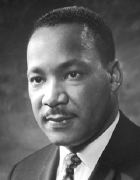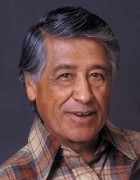Conference
Tranformative Power of Education: Lessons from Gandhi, King, Chavez and Mandela
Time: 1:00pm to 1:30pm
Location: Cal Poly Pomona, Bronco Student Center, Ursa Major Suite
Conference begins at 1:00 p.m. on October 5 and concludes October 7 at 1:30 p.m
Ahimsa Center in the College of Letters, Arts and Social Sciences at Cal Poly Pomona is pleased to announce a multidisciplinary conference, Transformative Power of Education: Lessons from Gandhi, King, Chavez and Mandela, October 5-7 (Friday-Sunday), 2018. The deliberations and dialogues at the conference will have significant implications for enriching the domain of transformative education. The conference timing coincides with the ushering of the 150th birth year of Gandhi, the 50th death anniversary year of King, the 25th death anniversary year of Chavez, and the birth Centenary year of Mandela.




Conference Description
Transformative education enables individuals to understand the dynamics between themselves and their larger contexts, between their inner and outer worlds. It deepens their awareness of their social and political environments. It empowers them to forge constructive relationships with those around them. It inspires them to find purpose in life, to strive for positive personal and social change.
This conference seeks to explore the transformative power of lessons we can draw from the lives and movements of Mohandas K. Gandhi (1869-1948), Martin Luther King, Jr. (1929-1968), Cesar Chavez (1927-1993) and Nelson Mandela (1918-2013). They were all ordinary human beings who rose to extra-ordinary heights in serving humanity. In their shared worldview, moral and spiritual growth of human civilization was as important as its material advancement. They championed human rights and dedicated their lives to combatting racism, oppression, injustice, violence and poverty. They led by example, with nonviolence as the core principle guiding their actions. Their journeys to nonviolence were quite different and varied, as were their movements in terms of scope, scale and impact. Together they contributed to a defining revolutionary trend of the twentieth century—effecting major historical change through nonviolent thought and action.
Conference Focus and Scope
Conference will focus on presentations representing multiple disciplinary perspectives that illuminate the transformative power of thoughts and actions of Gandhi, King, Chavez or Mandela. We expect presenters to focus and draw upon one or more these exemplars to examine the significance of their insights, ideas and actions for individual and/or social transformation, or for dealing with current forms of racism and sexism, violence and divides plaguing our world today.
Lessons from exemplars such as Gandhi, Khan, King, Chavez and Mandela may include:
- Self-introspection, education and quest for wisdom
- Resisting injustices and oppression
- Engaging adversaries with patience, persistence and civility
- Dealing with divides, discriminations and disparities
- Conflict resolution, negotiations and trust-building
- Speaking truth to power
- Human rights, social justice, and restorative justice
- Organizing and leading social and political movements
- Devising nonviolent methods of resistance
Presentations may also focus on
- Approaches to integrating the thought and actions of Gandhi, King, Chavez and Mandela in the existing curricula, or
- Application of their ideas and actions to classroom management, or for development of creative pedagogies aimed at holistic growth of students, and/or for facilitating a more collegial work-place environment.
Audience
Our audience (in the range of couple of hundred) in the conference is very diverse: college faculty and students, K-12 educators, business executives and other professionals, and members of the larger community. Almost all sessions (except workshops) are plenary (attended by all).
